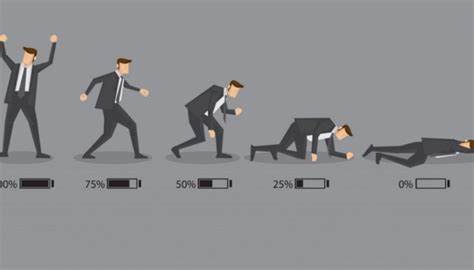In today’s busy world, managing energy is just as important as managing time. Whether you’re a student, a working professional, or a retiree, understanding how to balance your physical and mental energy can make each day more productive and enjoyable. Let’s explore the best ways to manage your energy effectively, keeping it simple and practical for everyone.

1. Start with a Good Night’s Sleep
Energy management begins long before the day starts — it begins with your sleep. A good night’s sleep is crucial for restoring the body and mind. Experts recommend 7-9 hours of sleep for most adults (CDC, 2022). Children and teenagers need even more. Sleep affects concentration, mood, and physical health. Establishing a consistent bedtime routine, keeping electronics away before bed, and creating a comfortable sleep environment can significantly improve sleep quality.
2. Eat for Sustained Energy
What you eat has a direct impact on your energy levels. Foods high in sugar can cause quick spikes and drops in energy, leading to feelings of fatigue. Instead, opt for balanced meals with complex carbohydrates (like oats and brown rice), healthy fats (like nuts and avocados), and proteins (like eggs and legumes) (Harvard Health, 2020). Also, eating smaller, more frequent meals can prevent the “afternoon slump” and keep your body fueled steadily throughout the day.
3. Stay Hydrated
Dehydration is a hidden enemy when it comes to energy management. Even mild dehydration can cause tiredness, headaches, and decreased concentration (Mayo Clinic, 2021). Drinking water regularly throughout the day — about 8 glasses on average — can help maintain energy. It’s important to listen to your body’s thirst signals and choose water over sugary drinks or excessive caffeine.
4. Move Your Body Regularly
Physical activity isn’t just for fitness; it plays a major role in energy regulation. Short bursts of movement, like stretching, walking, or a 5-minute dance break, can increase blood flow and oxygen to the brain, making you feel more alert and awake (Johns Hopkins Medicine, 2021). Regular exercise, even low-intensity forms like yoga or tai chi, has been proven to boost energy levels over time.
5. Manage Stress Effectively
Mental and emotional stress can drain energy faster than physical activity. Chronic stress causes the body to stay in a heightened state of alert, leading to exhaustion (American Psychological Association, 2022). Simple stress management techniques like deep breathing exercises, meditation, journaling, or even chatting with a friend can help lower stress and preserve mental energy.
6. Take Breaks and Rest Strategically
Working or studying for long periods without breaks can lead to burnout. The human brain can only focus intensely for about 90 minutes at a time (Anders Ericsson’s Research, 1993). Implement techniques like the Pomodoro Technique — working for 25 minutes and then taking a 5-minute break — to keep your mind fresh. Longer breaks during the day, like a proper lunch hour or a short walk, can recharge your energy reserves.
7. Prioritise Your Tasks
Not all tasks are created equal. Managing your energy is also about managing your workload smartly. Tackle high-energy tasks, such as brainstorming, problem-solving, or meetings, when you are naturally most alert — for many people, this is in the morning (APA, 2022). Reserve less demanding tasks, like answering emails or organising files, for times when your energy dips.
8. Create an Energising Environment
The environment around you can either sap or boost your energy. Natural light, a tidy workspace, and even having a plant nearby can significantly enhance energy and mood (Journal of Environmental Psychology, 2019). Noise management is important too — using noise-cancelling headphones or soft background music can create a more energy-efficient workspace.
9. Use Technology Wisely
While technology helps us stay connected and productive, it can also be a major energy drainer. Constant notifications, endless scrolling, and multitasking can lead to “tech fatigue.” Set designated times to check your devices and consider “digital detox” periods during your day to preserve mental clarity and focus (APA, 2021).
10. Listen to Your Body’s Signals
Everyone’s energy patterns are different. Some people are natural “morning larks,” while others are “night owls.” Pay attention to when you feel most energised and when you need rest. By aligning your tasks with your natural rhythms, you can maximise efficiency without forcing yourself to perform when your energy is low (Sleep Foundation, 2021).
How Self-Compassion Fuels Student Success and Growth
Conclusion
Managing your energy during the day isn’t about doing more — it’s about doing things smarter. By getting good sleep, eating balanced meals, staying hydrated, moving regularly, managing stress, and taking purposeful breaks, anyone can maintain steady energy levels throughout the day. Creating the right environment, using technology mindfully, and respecting your body’s natural rhythm further support energy balance. Small changes, practised consistently, can lead to lasting improvements in your daily life.
Remember, energy management is a personal journey. Start small, be consistent, and celebrate every improvement you notice!
References
- Centres for Disease Control and Prevention (CDC). (2022). Sleep and Sleep Disorders. Link
- Harvard Health Publishing. (2020). Foods that fight fatigue. Link
- Mayo Clinic. (2021). Water: How much should you drink every day? Link
- Johns Hopkins Medicine. (2021). Exercise and Your Energy Levels. Link
- American Psychological Association (APA). (2022). Stress Effects. Link

